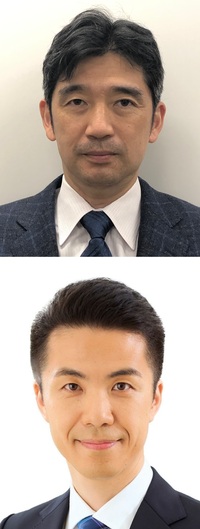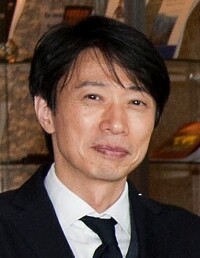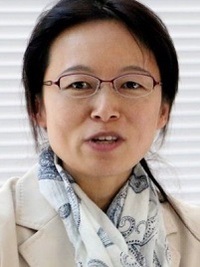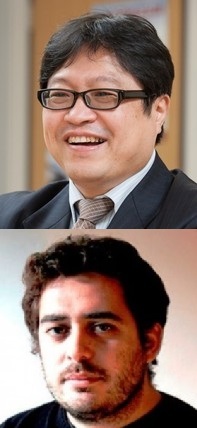GEfIL実践研究
The GEfIL Independent Research Project forms the centerpiece of this program and focuses on critical contemporary issues in 6 large, interdisciplinary, thematic fields (e.g. sustainability, diversity*, conflict prevention & peace building, global health, global governance [risk; human rights], global economy).
Students define and plan their own research projects within these fields. They are supervised by GLP and subject-specific mentors as well as by postgraduate teaching fellows. Interdisciplinary brainstorming sessions, special workshops and seminars with renowned guest speakers provide students with the opportunity to foster innovative thinking and test the practicability of their ideas. At the end of the year, students will give a (public) presentation of their projects and research outcomes.
*'Global Education' will replace 'Diversity' in 2017-2018, 2018-2019 and 2019-2020 season.
*'Global City' will start from 2019-2020 season.
GEfIL Independent Research Project (Year 2 December to Year 3 May)
The main aim of PHASE1 is to provide students with interdisciplinary/transdisciplinary research skills, communication and presentation skills in English as well as team-working competencies. Students will need a good grasp of these skills, when embarking on their own research projects in PHASE2.To this end, PHASE1 employs a project-based, single focus, “scaffolded” learning approach: Based on the ‘global issue’ interests that students mentioned in their GEfIL application forms, a large-scale scenario (case study) has been prepared, which will form the framework for students’ research projects.
Since the complexity of global issues usually demands collaboration between experts of diverse knowledge- and value-backgrounds, the research projects of PHASE1 will be carried out in interdisciplinary teams of students with similar interests but from different disciplines. Both as a team and individually, students will experience what it means to conduct ‘real’ research from the planning stages to the presentation of their findings. Each team will research, and propose solutions for, certain aspects of the set scenario, debate their ideas with other teams, explore meaningful collaborations, and consider the interests (and comments) of various experts and ‘stakeholders.’ Through this process, students will gain knowledge and experience in agenda setting, design and implementation of action and research plans, effective interdisciplinary teamwork, discussion and presentation skills.
The course is organized along two entwined strands:
1. a series of basic questions found frequently in transdisciplinary research projects and
2. a sequence of research skills students will acquire through structured tasks.
GEfIL Independent Research Project PHASE1, Class schedule for 2023-2024 (for Dai 9 kisei)
Independent Research Project PHASE1(FY2022-FY2023)Independent Research Project PHASE1(FY2021-FY2022)
Independent Research Project PHASE1(FY2020-FY2021)
Independent Research Project PHASE1(FY2019-FY2020)
Independent Research Project PHASE1(FY2018-FY2019)
Independent Research Project PHASE1 (FY2017-FY2018)
Lecture schedule for 2023-2024 is as follows: (For Dai9 kisei)
Workshop1 Sat. 9th December, 2023 13:30-16:30
Workshop2 Sat. 16th December, 2023 13:30-17:30
Workshop3 Sat. 3rd February, 2024 13:30-17:30
Workshop4 Sat. 17th February, 2024 9:30-17:30
Workshop5 Sat. 23rd March, 2024 13:30-17:30
Workshop6 Sat. 6th April, 2024 13:30-17:30
Workshop7 Sat. (TBC) May, 2024 9:00-18:00 Final Presentation
GEfIL Independent Research Project (Year 3 September to Year 4 May) :FY2024-FY2025
Independent Research Project PHASE2(FY2023-FY2024)Independent Research Project PHASE2(FY2022-FY2023)
Independent Research Project PHASE2(FY2021-FY2022)
Independent Research Project PHASE2(FY2019-2020 & 2020-2021)
Independent Research Project PHASE2(FY2017-2018 & 2018-2019)
Independent Research Project PHASE2 (FY2016-FY2017)
"Global Health" by Prof. Takahiro HIGASHI and Associate Prof. Haruhiko INADA

~Class Outline~
Global health is the science and practice of improving the health of people in the world in the most efficient and equitable manner possible. Its scope is not limited to low- and middle-income countries as the COVID-19 pandemic serves as an example; however, there is a particular focus on these countries, where people tend to have lower levels of health than those in high-income countries, to reduce health disparities globally. Moreover, it is a highly interdisciplinary field as determinants of health are not limited to medicine and healthcare. In this course, we will begin by providing an overview of global health and then proceed to study each year's global health topic and discuss how we can address it.
Keywords:Heath, public health, social medicine, preventive medicine, health promotion, health equity/disparity, social determinants of health
"Global Education" by Prof. Masaaki KATSUNO

As exemplified by the ongoing COVID-19 pandemic and the war in Ukraine, children are vulnerable, and most susceptible to deprivation and marginalization. At the same time, children are agentic, entitled to improved well-being of themselves and the overall society. Hence, as reflected in the United Nations Convention on the Rights of the Child (UNCRC), their rights comprise both protection and participation.
The UNCRC was unanimously adopted by the United Nations General Assembly in 1989 and has been ratified by all the member states except the United States. As an international agreement, the convention requires states to be fully committed to the realization of children’s economic, political, and cultural rights based on the principles of non-discrimination, best interests of the child, inherent right to life, survival and development, and the right to have her or his views respected.
Despite the improvements made in areas such as care, health, education, and juvenile justice, children’s rights are yet to be realized across the globe. Japan too is not an exception in this regard, characterized by obstacles to the realization of children’s rights, including poverty, bullying, and discrimination based on gender, ability, race, and nationality. Thus, children’s rights constitute a global and local issue that warrants an interdisciplinary approach.
This thematic group aims to explore the challenges and opportunities for advancing children’s rights both in the global and local contexts, with a particular focus on their educational rights. The scholarship considers that children’s educational rights include the right to education (e.g., equal access), right in education (e.g., non-discrimination, protection from violence and abuse, participation), and the right through education (e.g., endorsing respect for human rights and freedom). In this group, you will participate in expert lectures, read the relevant literature, discuss in groups, research a chosen topic, and present your findings and proposals for further improving children’s rights.
"Peace Buiding" by Prof. Ai KIHARA-HUNT

~Class Outline~
Some decades have passed since the idea of peacebuilding was suggested at the United Nations (UN). This thematic group will deal with peacebuilding as a comprehensive effort to build sustainable peace.
Sustainable peace has mainly two elements: that the risk of an armed conflict lapsing, or relapsing is minimalized; and that institutions and their capacity is built to resort to peaceful means to resolve disputes. In this course, students will analyze what sustainable peace entails, examine actual and possible reasons for armed conflicts - international and non-international, consider how to prevent the occurrence or recurrence of an armed conflict, and think about the relationship among human rights, development, and peace. In that process, students will be invited to pay a particular attention to the place of human rights and justice. Through practical research, students will gain a deeper and practical understanding of issues including 1) armed conflicts and volatile situations in the world, 2) human rights and sustainable peace, 3) justice, accountability, and sustainable peace, 4)structural violence, 5) gender, 6) Peace Operations, 7) refugees and migration, 8) development aid, 9) security sector, 10) local ownership, and 11) global governance and peacebuilding.
This year, the topic in focus of this course is transitional justice in Timor-Leste, but students can choose a specific area or topic of peacebuilding to research, to come up with their own analyses and suggestions.
keywords: peacebuilding, peace, human rights, development, armed conflict, security sector, transitional justice
"Sustainability" by Prof. Kensuke FUKUSHI and Prof. Alexandros GASPARATOS

~Class Outline~
The smallest unit of society is the individual. Sustainability of the individual heavily depends on the sustainability of the family, of society, a region and indeed, the earth. Protection of an individual’s life and protection of a region’s society cannot be achieved without ensuring the sustainability of the whole earth. Sustainability should be achieved by a variety of scales and ideally, development plans, industrial activities, etc. would be executed on the basis of the concept of sustainability. In this ‘Sustainability’ theme group, we will examine from the viewpoint of sustainability various regions of the world and the difficulties they face regarding issues such as the environment, health, resources, development, human resources, industry, livelihood, culture, education, etc. and together we will consider possible solutions.


